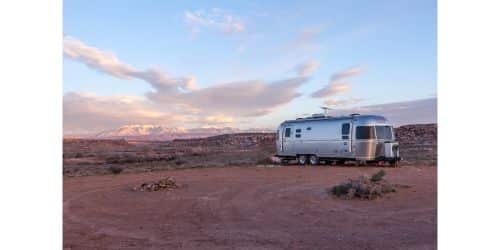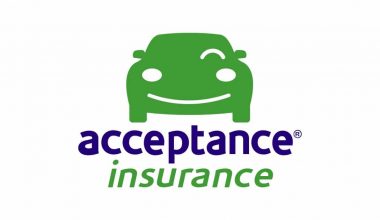Exploring the open road in an RV is an exciting way to enjoy the comforts of home while exploring the open road. Your RV, like any other vehicle, requires adequate insurance coverage to safeguard you, your passengers, and your investment. In this comprehensive guide, we will delve into the world of RV insurance, covering everything from what it is and the coverage it offers to the cost considerations and the best insurance options available in Colorado. So, let’s hit the road and dive into the world of RV insurance!
What is RV Insurance?
RV insurance is a type of coverage designed to safeguard your recreational vehicle, which could be a motorhome, camper van, or travel trailer. It combines vehicle insurance and homeowners insurance to provide full coverage for your mobile home. Just as you wouldn’t drive your car without insurance or leave your house uninsured, adequate RV coverage is essential.
RV Insurance Coverage
RV insurance normally contains several critical components that protect you from various risks and liabilities. The following are the primary coverage options for your RV insurance policy:
- Liability Coverage: This coverage is essential and is frequently mandated by law. It protects you if you injure or damage someone else’s property while driving your RV.
- Collision Coverage: If your RV is damaged in a collision with another vehicle or item, this policy helps pay for repairs or replacement.
- Comprehensive Coverage: Comprehensive coverage protects against non-collision situations such as theft, vandalism, fire, and natural disasters.
- Uninsured/Underinsured Motorist Coverage: This policy kicks in if you get into a collision with a motorist who is either uninsured or has insufficient coverage.
- Personal Property Coverage: Personal Property Coverage protects your stuff within the RV, including furniture, appliances, electronics, and personal goods.
RV Insurance Cost
According to Progressive, one of our preferred RV insurance companies, the average RV policy costs roughly $1,500 per year, or about $125 per month. However, this average does not always reflect the full range of RV insurance costs.
Campers can cost anywhere from a few thousand dollars to well over a million dollars. One implies you’ll see a wide range of insurance premiums based on one factor.
Factors Influencing the RV Insurance Cost
The cost of RV insurance might vary depending on several factors. The following are some important factors that determine the cost of your RV insurance:
- RV Type: The type and class of your RV might affect your policy costs. Premiums for Class A motorhomes are often higher than for smaller campers or travel trailers.
- RV Value: The value of your RV is an important factor in determining insurance costs. Premiums for higher-value RVs are typically higher due to the increased risk of repair or replacement.
- Usage and Mileage: The frequency with which you utilize your RV and the number of miles you drive might affect the cost of your policy. Full-time RVers may have different insurance requirements and costs than occasional users.
- Coverage Limits: The liability, collision, and comprehensive coverage limits you select will affect your premium. Higher coverage limits are usually associated with higher premiums.
- Deductibles: The amount of your deductible determines the cost of your insurance. A greater deductible often results in lower rates, but you will pay more out of pocket if you file a claim.
Best RV Insurance
When it comes to RV insurance, choosing the correct insurance provider is critical. Here are seven of the best RV insurance companies, noted for their extensive coverage options, low prices, and exceptional customer service:
#1. Progressive Insurance:
Progressive is a well-known company that provides specialized RV policies. They cater to various RV types, including motorhomes, travel trailers, and campers. Progressive provides personalized coverage, roadside assistance, and full-time RV alternatives.
#2. Good Sam Insurance:
Good Sam is a respected provider that specializes in RV policy. They offer coverage choices for motorhomes, travel trailers, fifth wheels, and more. Good Sam offers comprehensive coverage, including liability, accident, and personal possessions coverage. They also offer additional features like emergency spending coverage and roadside help.
#3. National General Insurance:
They provide specialist insurance policies with coverage options targeted at various RV types. National General offers all-inclusive coverage, including liability, collision, and personal property. They also provide distinctive features such as full-time RV coverage and storage option coverage.
#4. Geico:
Geico is a well-known insurance company that provides RV insurance. They cater to RVs, travel trailers, and campers. Geico provides customizable coverage options such as liability, collision, and comprehensive coverage. They also offer other perks such as emergency expense coverage and roadside help.
#5. Safeco Insurance:
This is a reputable company that provides RV policy for various recreational vehicles. They offer customizable coverage options such as liability, collision, and comprehensive coverage. Optional coverages for personal possessions and roadside assistance are also available from Safeco Insurance.
#6. Allstate Insurance:
Allstate is a well-known insurance provider that provides RV insurance coverage. They cater to RVs, travel trailers, and campers. Allstate provides customizable coverage, including liability, collision, and comprehensive coverage. They also provide extras like personal property coverage and roadside help.
#7. Farm Bureau Insurance:
This is a respected company that provides RV policy. They cater to RVs, travel trailers, and campers. Farm Bureau Insurance provides customizable coverage options including liability, collision, and comprehensive coverage. They also offer other benefits such as personal belongings coverage and emergency spending coverage.
When choosing an RV policy carrier, keep your specific needs, budget, and the coverage options that best suit your RV and lifestyle in mind. Investigating and comparing quotes from these top providers will assist you in determining the best policy for your RV.
RV Insurance Colorado
If you’re an RV enthusiast in the lovely state of Colorado, you should be aware of the special concerns for RV insurance. Colorado’s gorgeous scenery, mountain ranges, and numerous recreational options make it a great RV location. Here are some important aspects to consider while insuring your RV in Colorado:
#1. Extreme Weather Conditions:
Colorado is well-known for its erratic weather, which includes hailstorms, severe snowfall, and powerful winds. These weather occurrences have the potential to cause harm to your RV. When choosing an insurance policy, make sure it covers damages caused by localized extreme weather conditions.
#2. Wildfires:
Colorado is prone to flames, particularly during dry seasons. It is critical to get coverage that protects your RV from fire-related damage. Confirm that your policy offers comprehensive coverage, which often includes wildfire damage.
#3. Mountainous Terrain:
The rugged geography of Colorado provides beautiful views and opportunities for outdoor recreation. Navigating steep inclines and twisting mountain roads, on the other hand, can provide distinct obstacles for RV owners. Consider roadside assistance and emergency expense coverage to manage scenarios such as breakdowns or accidents in distant places.
#4. Outdoor Recreational Activities:
Colorado is renowned for its outdoor recreational activities, including hiking, biking, fishing, and more. If you intend to engage in these activities while driving your RV, make sure your policy includes liability coverage to protect you in the event of an accident or injury to others while participating in these activities.
#5. Storage Options:
Consider insurance coverage for the storage period if you store your RV during the offseason or when it is not in use. Some insurance may provide discounted rates or particular coverage for storage facilities, safeguarding your RV against theft, vandalism, or damage when it is not in use.
#6. Personal Belongings:
Your RV most certainly transports personal belongings such as camping equipment, electronics, and other valuables. Check to see if your policy includes personal property coverage, which can reimburse you if your belongings are stolen, damaged, or lost.
#7. Local Regulations:
Make yourself familiar with any insurance requirements or laws imposed by the state of Colorado. While liability insurance is typically required for all vehicles, including RVs, understanding the minimum coverage limits and any additional requirements is critical.
When insuring your RV in Colorado, it’s best to work with insurance companies who are familiar with the area. They can walk you through the state’s particular insurance considerations and recommend coverage options that are tailored to your needs.
Remember, every RV owner’s insurance needs may vary, so it’s crucial to assess your requirements, research different insurance providers, and compare quotes to find the most suitable policy for your RV adventures in Colorado.
What type of insurance do I need for my RV?
Here are the main types of insurance you may need for your RV:
- Liability Insurance
- Collision Insurance
- Comprehensive Insurance
- Uninsured or Underinsured Motorist Coverage
- Personal Injury Protection (PIP)
- Roadside Assistance
- Full-Timer Coverage
Who has the cheapest RV insurance?
The cost of RV insurance depends on several factors, including the type of RV, its value, your location, your driving history, and the coverage options you select. While it’s tough to select a cheap insurance company globally, here are a few insurance providers that are known for delivering competitive rates:
- Progressive Insurance
- GEICO
- National General Insurance
- Good Sam Insurance Agency
- State Farm
Is it a good idea to get RV insurance?
Yes, getting RV policy is generally a good idea. While RV insurance is not cheap, the benefits and peace of mind it provides outweigh the cost for the majority of RV owners. Compare several coverage options, assess your personal needs, and choose a policy that provides the appropriate degree of protection for your RV and lifestyle.
How much coverage should I have on my RV?
If your RV is totaled, you should have adequate coverage to replace it. Comprehensive coverage covers damage or destruction to your RV that is not caused by a collision. May include theft, vandalism, fire, falling objects, storms, and more. You should have enough to replace your RV.
Is Progressive good RV insurance?
Progressive is generally considered a reputable and popular insurance provider for RV coverage. Here are some factors that make Progressive a good choice for RV insurance:
- Specialized RV Coverage
- Customizable Policies
- Competitive Rates:
- Discounts and Benefits
- Additional Features
While Progressive is well-known for RV insurance, it is crucial to compare prices and consider your unique needs when selecting an insurance provider. Consideration of aspects such as coverage options, pricing, customer service, and discounts can assist you in determining whether Progressive is the best fit for your insurance needs.
Is RV insurance different than auto?
Yes, RV insurance is distinct from auto insurance. While some parallels may exist, RV insurance is specifically developed to handle the unique needs and risks associated with owning and operating a recreational vehicle (RV).
Does RV insurance cover water damage?
RV insurance may provide coverage for water damage, but it depends on the specific policy and coverage options you have selected. To understand the particular water damage coverage included in your RV policy, speak with your provider or agent. They can advise you on coverage details, limitations, and any further choices available to ensure you have enough water-related risk protection.
What is the downside of owning an RV?
RVs require a lot of maintenance. You must keep up with cleaning, which includes disposing of RV waste. You must also ensure that fluids are replenished and tires are properly inflated. Of course, there may be times when repairs are required.
How to save money on RV insurance?
Bundle your policies: Most RV policy providers will give you a discount on your price if you buy RV insurance and auto or home insurance at the same time.
Pay in full: Many insurers will give you an automatic discount if you pay your annual RV policy premium in full and upfront.
Conclusion
RV insurance is an essential component of safe and pleasant RV ownership. It gives you financial security, peace of mind, and legal conformity. Making an informed decision requires understanding the numerous coverage options, cost factors, and reliable insurance providers.
Remember to evaluate your specific needs, the kind and value of your RV, and the level of coverage required for your trip. Compare estimates from various insurance companies to discover the greatest combination of coverage, affordability, and customer service.
Having a proper RV policy guarantees that you’re covered from unexpected occurrences and can fully enjoy the freedom of the open road, whether you’re going on a cross-country adventure or arranging weekend vacations. So, make the prudent choice and protect your mobile home with the proper RV insurance coverage. Happy travels!
- HOW MUCH IS RV INSURANCE: 2023 Price Guide
- RV INSURANCE COST: How Much Is RV Insurance? (2023)
- TRAVEL TRAILER INSURANCE: Everything You Should Know
- Colorado Car Insurance: Coverage, Cost & Best Options
- Business Insurance Colorado: Coverage, Types & Cost






